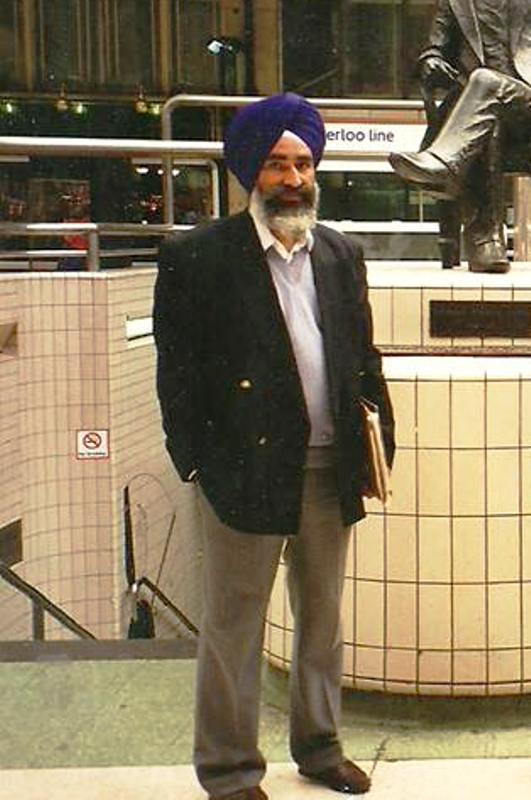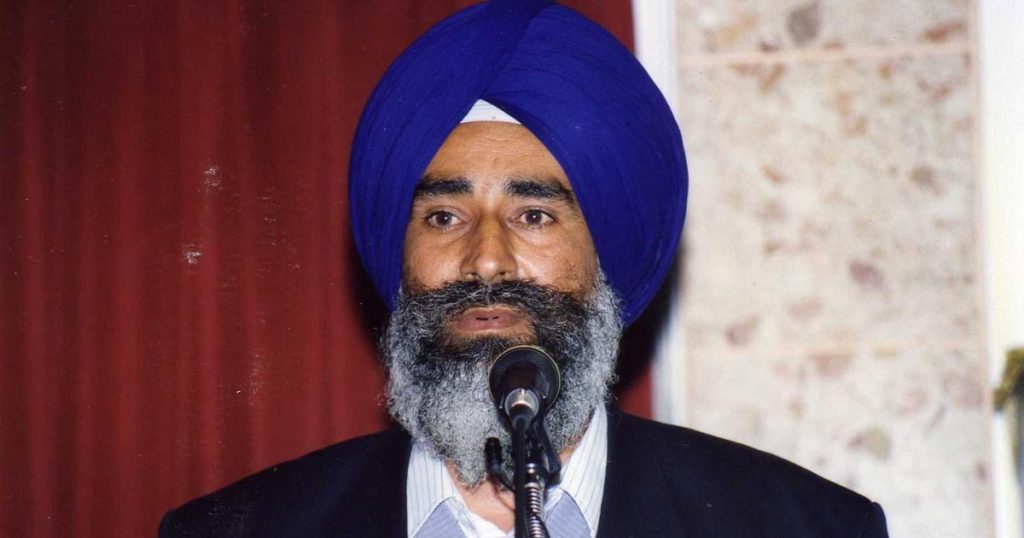Protecting Human Rights
SHAHEEDJASWANT SINGHKHALRA JI


SHAHEED JASWANT SINGH KHALRA JI

SHAHEED JASWANT SINGH KHALRA JI
Deep Sidhu, also known as Sandeep Singh Sidhu, was an Indian actor and Sikh activist. He died on February 15, 2022. His acting career began with the Punjabi film Ramta Jogi, which was made by Dharmendra under the auspices of his company Vijayta Films.
About Shaheed Jaswant Singh Khalra
In the 1980s and 1990s, in the militarised region of India, Shaheed Jaswant Singh Khalra, a famous human rights activist, revealed widespread disappearances and extrajudicial killings of people. He started a campaign to identify the deceased and unite their families, and he testified before the Indian Supreme Court to show that there had been human rights breaches. As a result, the Commission of Inquiry Act was established by the Indian Supreme Court in 1996, and Mr. Khalra collaborated with victims to hold law enforcement officials accountable. He was committed to exposing the injustices, but the Punjab police kidnapped and killed him in 1995. The voices of people he inspired and the promise of justice he fought for carry on his legacy.
Shaheed Jaswant Singh Khalra, Who is he?
Jaswant Singh Khalra was a charismatic human rights advocate and martyr who devoted his life to revealing a widespread sikh disappearance in Punjab. Mr. Khalra, who was respected by international human rights organisations, spoke out forcefully against the extrajudicial killings and forced disappearances of people in India's militarised Punjab area in the 1980s and 1990s. Risking his own life and safety, he bravely advocated for justice on behalf of Sikh victims and their families. He bravely spoke out against the injustices meted out to the Punjabi people, motivating them to fight for their rights.
Mr. Khalra discovered several tombs and unmarked mass cremations in 1995. As word of the many disappearances emerged, rage surged throughout Punjab and the nation. Mr. Khalra started a quest to identify the dead and gather their families because many individuals in the area were being killed without being brought to justice. Instances of extrajudicial killings and forced disappearances by the Punjab police were also documented with his assistance. The serious violations of human rights in Punjab were brought to light by Mr. Khalra's campaign for justice. His assignment quickly grew too perilous, though, and the police soon kidnapped and tortured him. He persisted in speaking out even after being kidnapped, despite his suffering, pushing people to rise up against injustice and brutality. Mr. Khalra was assassinated in 1995, allegedly by Punjab police, as a result of his boldness and commitment. Freedom-loving people all throughout the world will remember his valiant efforts and commitment.
Examining Jaswant Singh Khalra’s Initiatives to Bring Attention to India’s Missing Persons
Jaswant Singh Khalra made hundreds of undisclosed cremations, tombs, and disappearances in the Indian state of Punjab public in 1995. This incident marked a turning point in India's human rights abuses. As a result, the Punjab police detained him and tortured him for months. But despite the harsh treatment, Mr. Khalra persisted and planned a journey to spread awareness of the kidnappings and murders of people in Punjab's militarised territory.
Mr. Khalra spearheaded a successful fight against the government thanks to his commitment and tenacity. He testified before the Indian Supreme Court and offered proof of extrajudicial killings and abuses of human rights. As a result, the Commission of Inquiry Act was established by the Indian Supreme Court in 1996, granting victims and their families the ability to seek redress. Mr. Khalra also collaborated with victims to outline instances of wrongful demise and torture. This resulted in the prosecution of numerous law enforcement officers. Additionally, Mr. Khalra published a great deal about the disappearances and gave many of the initial testimony that revealed the systematic wrongdoing of the government. His selfless work captured the interest of the world community, drawing much-needed attention to the situation of the Punjabi people. Eventually, this gained traction, and the Indian government was compelled to act to stop the violations of human rights taking place in their country. Unfortunately, Mr. Khalra was kidnapped and killed by the Punjab police in 1995 before he could see his efforts come to fruition. However, his legacy lives on today thanks to the voices of the people he inspired and the promise of justice for which he battled for.
